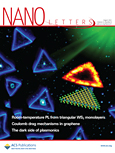 You might be forgiven for thinking that the editors were describing a bad relationship rather than a paper gone wrong, the journal of Plant and Cell Physiology is retracting a 2004 article by Korean researchers who “manipulated and repeatedly used” micrographs.
You might be forgiven for thinking that the editors were describing a bad relationship rather than a paper gone wrong, the journal of Plant and Cell Physiology is retracting a 2004 article by Korean researchers who “manipulated and repeatedly used” micrographs.
The article, “Ornithine Decarboxylase Gene (CaODC1) is Specifically Induced during TMV-mediated but Salicylate-independent Resistant Response in Hot Pepper,” which appeared a s a short communication in the journal, came from the lab of Kyung-Hee Paek at Korea University.
According to the retraction notice: Continue reading Image highjinx lead to retraction of hot pepper paper








